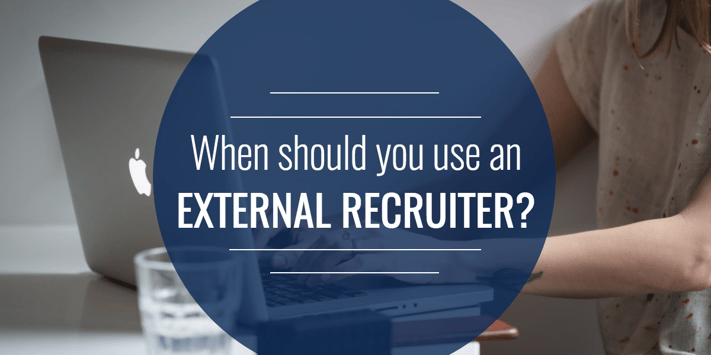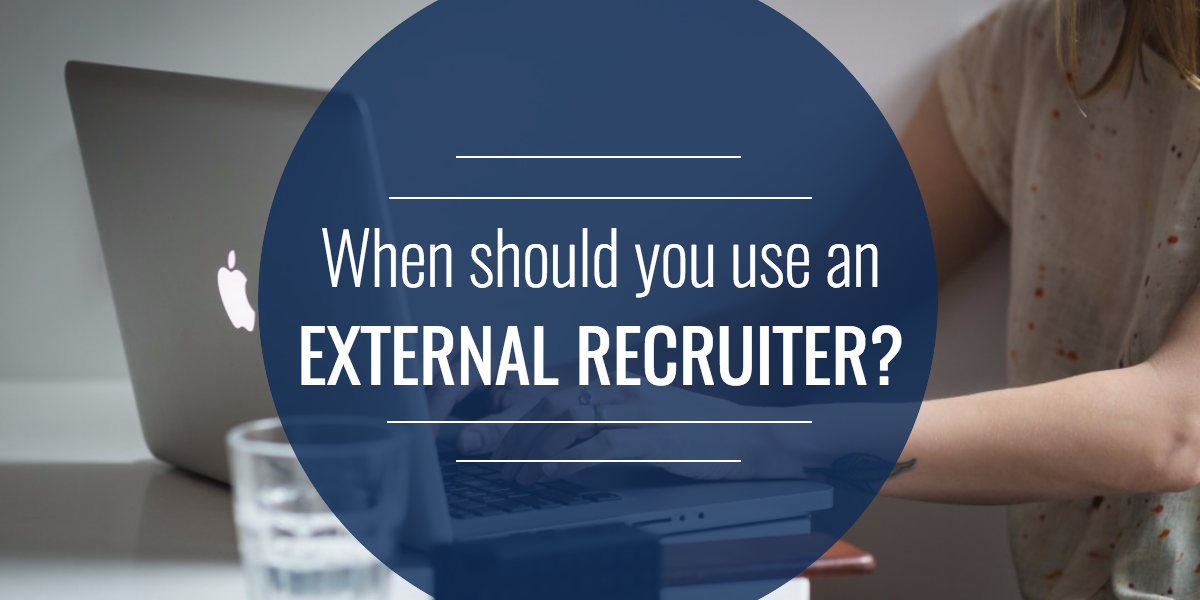
If you’re like many other HR professionals, recruiting, hiring, onboarding, training, and managing performance reviews all fall under your purview. Depending on the size of your organization, it may be up to you and a very small staff (if that) to manage all of these tasks.
Unfortunately, sometimes company leadership lacks understanding about the ebbs and flows of the employee lifecycle. When they need new staff in key positions, they may have unrealistic expectations that you find the correct candidates to fill those roles quickly.
Often the state of your recruiting pipeline and your existing workloads limit the speed with which you can find a great fit for your open positions. In these high-pressure moments, you may wonder if it’s the right time to work with outside recruiters to help meet the demand for new permanent staff. In some cases, this can be a great choice.
Here are a few instances when you may want to consider reaching out to an external recruiter:
You’re bogged down
When the other parts of your job are on an upswing, finding time to maintain and screen a strong list of potential employees may be overwhelming. However, a recruiter’s entire job is based on their ability to keep in touch with a list of great prospects. Not only does a recruiting agency help you find qualified candidates, but their screening processes may replace the first several interviews you’d normally conduct, saving you significant amounts of time.
Your company is expanding into a new location
Odds are good that even if you’ve managed to maintain an updated pipeline of job candidates, they reflect the geographical location of your current workplace. When your company is growing into new markets, it can take some time to develop a network of potential employees to draw upon. Working with an experienced recruiting agency can be a great way to find the best candidates in your new city.
The job openings require special qualifications or skills
When you’re looking for someone with a certain skillset or level of experience, you might find you have a very limited list of qualified people in your database to draw upon. Working with a recruiter who has a large network of job-seekers (active and passive) with a variety of skills and experiences can help you find exactly the right person to fill your open roles.
However, as with any time-saving convenience, there are a few things you should keep in mind before you contract with a recruiter to fill open positions in your company.
It can be costly
Recruiting agencies are often paid the equivalent of at least two months’ salary for whomever they place. When you’re looking to hire entry-level or low-salaried employees, this may not seem exorbitant. However, this means a bigger investment for highly-qualified senior employees (particularly if they end up negotiating a higher salary range than you’d initially intended).
It pays to do your research
If you’re investing money to ensure you get the strongest employees for your staff, it’s wise to do your research to get the best recruiter on your team. The difference in outcomes between an adequate recruiter and an excellent one can be pretty significant. Get references from HR staff and leadership at other companies to ensure that they were happy with their experience before you contract with a recruiting agency.
It may take some experimenting
By the time you’ve had a few positive experiences with a contract recruiter, they’ll likely have figured out how much interaction you prefer to have with them, and what sort of candidate is the best fit for your company. When you’re first working together, though, a recruiter may need a little extra input and management from you. As long as you’ve chosen a recruiter with a strong reputation and plenty of experience, this investment of time and energy should result in a better talent pool for your company.
If you’re looking for other ways to save time at work while delivering great results for your company, take a look at our Ultimate Guide to Saving Time on Payroll.

